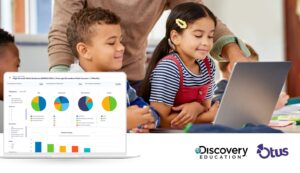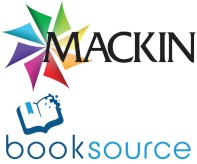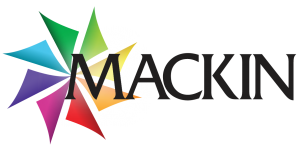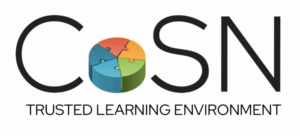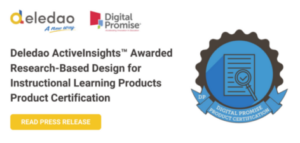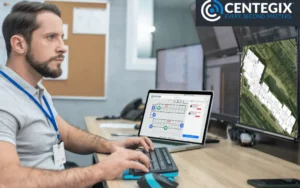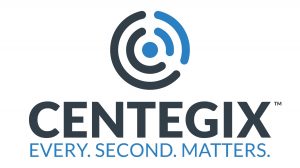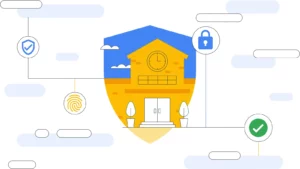By: Ymkje Wideman-van der Laan, for ed-spaces.com
Cooperative Purchasing Agencies (Co-ops) are becoming indispensable for procurement professionals in school districts. By leveraging collective buying power, co-ops streamline procurement processes, secure significant cost savings, and provide access to a wide range of products and services, ultimately helping school districts reach their financial and operational goals. School districts today are grappling with tight budgets, increased demand for transparency, and the need for more efficient procurement practices. Recent trends indicate a growing reliance on digital tools and centralized purchasing to cut costs and improve operational efficiency.
What Are Cooperative Purchasing Agencies?
Cooperative Purchasing Agencies (Co-ops) are organizations that combine the purchasing power of multiple entities to negotiate better pricing and terms for goods and services. For example, a co-op might pool the purchasing needs of several school districts to obtain discounts on classroom supplies or technology equipment that would be unattainable individually. The concept of cooperative purchasing dates back to the early 20th century, when local governments and educational institutions began forming alliances to optimize their procurement processes and save taxpayer dollars. Today, co-ops operate at regional, state, and national levels, providing comprehensive procurement solutions to a diverse range of public sector organizations.
Benefits of Using Cooperative Purchasing Agencies
One of the primary advantages of co-ops is cost savings. By using the collective buying power of many members, co-ops can secure significant discounts that individual school districts might not achieve independently. Co-ops offer time efficiency by streamlining procurement processes and reducing the administrative burden on school staff.
According to the latest reports, the Association of Educational Purchasing Agencies (
AEPA) saw annual purchases exceed $1 billion in 2022, reflecting a significant increase from previous years. This growth underscores the rising reliance on co-ops for cost-effective procurement solutions. Similarly, Sourcewell, another leading co-op, facilitated over $4 billion in cooperative purchasing contracts in 2022, marking a 15% year-over-year increase. These figures highlight the significant financial impact of co-ops in helping school districts and other public entities maximize savings and streamline procurement processes.
Access to a wide range of products and services is another benefit, as co-ops maintain extensive catalogs of pre-vetted suppliers. This simplifies vendor selection and ensures compliance with legal and policy requirements. Additionally, Co-ops provide valuable expertise and support, helping procurement professionals navigate complex purchasing decisions.
Another significant benefit of using co-ops is the ability to “piggyback” on existing contracts. This process allows school districts to leverage contracts that have already been negotiated by other entities, saving time and resources that would otherwise be spent on the procurement process. Piggybacking ensures that districts can take advantage of competitively bid contracts that meet stringent standards and regulations, thereby enhancing efficiency and cost-effectiveness. This approach fosters collaborative purchasing, which can lead to better pricing and terms due to the aggregated demand from multiple districts. By utilizing piggybacking through co-ops, school districts can achieve greater purchasing power and streamlined procurement processes, ultimately benefiting their overall operational efficiency.
While co-ops offer significant benefits, there are also potential drawbacks. One limitation is the potential lack of flexibility; school districts may be constrained by the terms and conditions negotiated by the CPA, which might not perfectly align with their specific needs. Also, smaller vendors might be excluded from CPA contracts, limiting the diversity of suppliers. There is also the risk of dependency on a limited number of large contracts, which could reduce competitive pricing in the long term. Understanding these limitations is crucial for school districts to make informed decisions about their procurement strategies.

Top Six Co-ops for School Districts
Below are the top 6 Co-ops that stand out for their exceptional services and benefits, each offering a comprehensive range of products and services tailored to the needs of school districts. Case studies from districts utilizing these co-ops highlight their positive impact on procurement efficiency and cost savings.
AEPA is one of the largest group buyers in K-12 education, mentioned by 71% of executives as an increasingly important player. AEPA includes Education Service Agencies (ESAs) from 26 states, solicits bids, and invites vendors to respond. Once AEPA awards a contract, individual districts in member states can purchase from the vendor at the negotiated price. Vendors can register directly on the association’s site. Each member state has one representative on the AEPA board, and member states must participate in 60% of the Request For Purchase (RFP) contract awards to remain active members. In 2022, annual purchases through AEPA exceeded $1 billion. AEPA emphasizes compliance with state purchasing laws and aims to be “nationally bid but locally awarded.”
Omnia Partners is a leading national cooperative purchasing organization, previously known as National IPA. It offers extensive procurement solutions across public and private sectors, including educational institutions. Omnia Partners combines the purchasing power of its members to achieve significant cost savings and streamline the procurement process. With a vast portfolio of competitively solicited contracts, it provides a wide range of products and services tailored to meet the needs of school districts, improving procurement efficiency and reducing costs.
“Utilizing Omnia Partners cooperative contracts to supply and furnish the new Havre de Grace Middle/High School saved time and money… They also provide a great economy of scale to achieve greater discounts than we could leverage on our own.”
– Sara Rowe, Procurement Agent, Harford County Public Schools, Marylandi
3. Sourcewell
Sourcewell is a service cooperative that assists government, education, and nonprofit entities with cooperative purchasing. By leveraging its members’ collective purchasing power, Sourcewell offers a wide array of nationally solicited contracts to secure competitive pricing and terms. It simplifies the procurement process for school districts by providing access to pre-negotiated contracts for various products and services, from office supplies to large-scale infrastructure projects. Sourcewell’s commitment to transparency and compliance with procurement standards guarantees that school districts benefit from both cost savings and quality products.
BuyBoard was formed by the National School Boards Association and several state school board associations to streamline the buying process for schools and other public entities. It is governed by an 11-member board representing members from schools, cities, and counties. Members of BuyBoard include over 4,600 entities in Texas and 600 national entities. Texas members receive an annual rebate based on participation. BuyBoard uses a multiple award schedule with over 1,100 vendor contracts and annual sales of $860 million.
“BuyBoard allows local educational agencies to save resources and money by consolidating a nearly limitless supply of goods and services under one roof and offering discounts through group purchasing power. Every time a California school district uses BuyBoard, they will achieve time and cost efficiencies that can be redirected toward student support and services.” – California School Boards Association (CSBA) CEO & Executive Director Vernon M. Billyi
Originating from the Region 4 service agency in Houston, Texas, TCPN is one of the largest co-ops in the country, with over $1.1 billion in sales. This co-op competitively solicits proposals and awards contracts through multiple award schedules in over 68 contract categories. TCPN partners with regional cooperatives under revenue share agreements, increasing their reach and purchasing power across various regions.
This member-owned, not-for-profit sourcing cooperative provides expertise, solutions, and services to the educational community and related institutions. Established in 1934, E&I had nearly $3 billion in aggregate member spending in 2017. Members can access a diverse portfolio of competitively awarded contracts, electronic procurement solutions, and consulting services. Leveraging the knowledge and expertise of more than 4,500 member institutions, E&I helps members reduce costs and optimize supply chain efficiencies. The cooperative’s member-driven competitive solicitation process meets generally accepted procurement standards nationwide.
“I was looking for a cooperative that could be a one-stop-shop and E&I delivers. As our sole partner in business, the relationship continues to grow and prosper. We are so thankful to be a part of this large network” – Hotchkiss School, Lakeville, Connecticutii

How Cooperative Purchasing Agencies Help Procurement Professionals
Co-ops play a crucial role in simplifying the procurement process for school districts. By handling vendor negotiations and contract management, Co-ops reduce the administrative load on procurement professionals. This allows them to focus on strategic planning and improving procurement practices. Co-ops offer training and resources to boost the skills of procurement staff, ensuring they stay updated on best practices and regulatory requirements.
Steps to Implement Cooperative Purchasing in School Districts
For school districts looking to implement cooperative purchasing, the first step is to evaluate their current procurement practices. Researching and selecting the right CPA is crucial, followed by integrating CPA resources into the procurement workflow. Continuous monitoring and evaluation will help districts measure the impact and make necessary adjustments.
Procurement officers can follow these steps to implement cooperative purchasing:
1. Evaluate Current Procurement Practices:
Conduct a comprehensive review of existing procurement methods, identifying areas where cost savings and efficiency improvements are needed.
2. Research Cooperative Purchasing Agencies (Co-ops):
Investigate different Co-ops and their offerings by assessing their reputation, compliance with state laws, and contract options. Consider case studies or testimonials from other school districts to inform your decision.
3. Select the Right CPA:
Compare the services, product ranges, and fee structures of various Co-ops, choosing one that best aligns with the district’s specific needs and goals.
4. Integrate CPA Resources into the Procurement Workflow:
Register the school district with the selected CPA, train procurement staff on using CPA tools and resources, and update procurement policies and procedures to include CPA options.
5. Negotiate and Award Contracts:
Work with the CPA to solicit bids and award contracts, ensuring all contracts comply with local and state procurement regulations.
6. Monitor and Evaluate Performance:
Continuously track the cost savings and efficiency gains achieved through cooperative purchasing, gather stakeholder feedback to identify any issues or areas for improvement, and adjust strategies and processes based on the findings.
7. Maintain Communication with the CPA:
Regularly communicate with the CPA to stay updated on new contracts and opportunities and participate in CPA meetings and events to share experiences and learn best practices.
Co-ops are game changers in the procurement landscape for school districts. They offer substantial cost savings, streamlined operations, and access to a broad spectrum of pre-vetted suppliers. Leveraging Co-ops is a strategic move that maximizes resources and enhances procurement efficiency. By assessing current practices and selecting the right Co-ops, school districts can seamlessly integrate these resources into their workflow, leading to significant improvements in cost management and operational effectiveness. Harnessing the power of Co-ops not only optimizes procurement processes but also allows school districts to allocate their resources more effectively, ultimately enhancing educational outcomes.
Endnotes:
i https://www.omniapartners.com/industries/k-12-education
ii https://www.eandi.org/
The Illinois Learning Technology Purchase Program (ILTPP) partners with the Association of Educational Purchasing Agencies (AEPA) to provide K-12 schools exclusive access to high-quality, cost-effective educational technology solutions. This collaboration ensures that districts across Illinois benefit from streamlined purchasing processes and competitive pricing.



